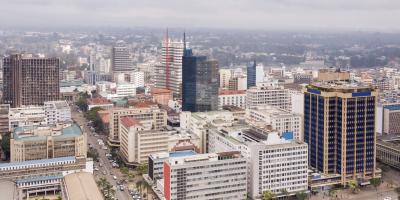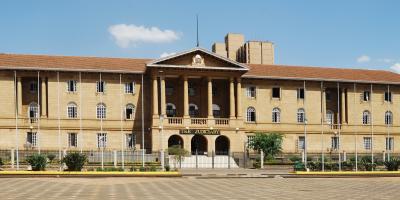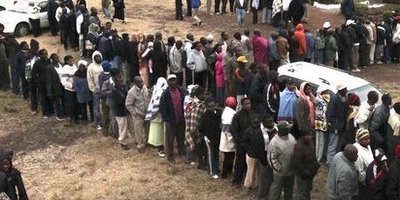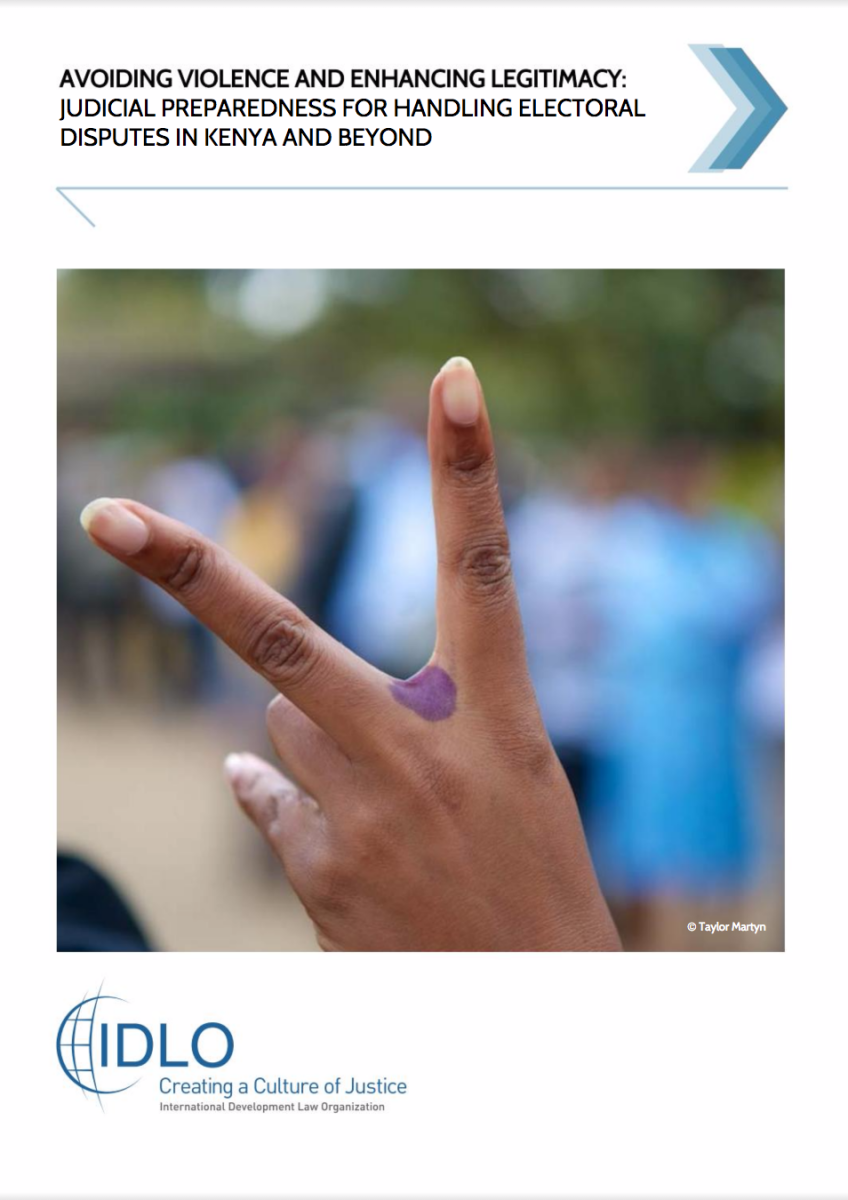
The public backlash against the judiciary following the Presidential Petition decision in the Supreme Court in 2013 provides a lesson on the immense difficulties of convincing a cynical public that judicial decisions are based on legal reasoning and not political influence.
IDLO's Director-General, Irene Khan, provides a brief journey through Kenya's electoral preparedness
(Content extracted from the speech of the Director-General Irene Khan, at the launch event of "The Lessons Learned Brief, Avoiding Violence and Enhancing Legitimacy: Judicial Preparedness for Handling Electoral Disputes in Kenya and Beyond" - May 4, 2017, Nairobi, Kenya)
|
|
 Preparing
Preparing
2010
Kenya is a member party of IDLO, and since 2010 there has been collaboration with key agencies in the country to support:
> the development and implementation of its Constitution,
> the transformational reform and strengthening of its judiciary.
Effective electoral dispute resolution we all know, is key to preventing violence and ensuring the legitimacy of electoral results. It increases public confidence and creates an incentive for political participation by citizens. But, in many emerging democracies concerns about judicial independence deter candidates from suing the courts to adjudicate disputes.
Weak and incoherent laws and opaque systems can prevent the timely and fair handling of complaints. And courts often do not have the capacity, knowledge or means to effectively manage electoral disputes. And as our Report points out electoral cases cannot be treated in the same way as others matters that come before the courts, because of their inherent political sensitivity, the high public interests in their outcomes, intense bursts in which electoral petitions are filed and the short time limits within which they have to be dispensed.
2012
Since 2012, IDLO supported the Judicial Working Committee on Elections Preparedness (JWCEP) in various ways:
> through developing procedural rules,
> trainings judicial officers and court staff,
> creating documents to communicate with stakeholders and public,
> embedded a group of researchers within the judiciary to service reference points for judicial officers, and
> assisted the judiciary to undertake comprehensive stakeholder engagement.
 Progress
Progress
2013
In an environment marked by ethnic tensions and low public trust in political institutions, that had triggered the post-election violence in 2007, the successful management of election petitions by the Kenyan judiciary was one of several key factors responsible for the relatively peaceful 2013 elections and subsequent transfer of power in the country.
After the 2013 elections, 188 petitions challenging the results were filed, and all of them were finalized within the statutory mandated six months’ period by the Court of First Instance. And despite time constraints and pressures, the electoral bench of the High Court was commended for its consistency in applying the jurisprudence, and for the attention it paid to substantive electoral justice. Find out more about Kenya's Court of First Instance
2017
In the lead-up to Kenya’s August 2017 elections, IDLO’s work on EDR continued to evolve, with the now successor of JWCEP, the Judiciary Committee on Elections (JCE).
As IDLO’s recent Report points out, electoral cases cannot be treated in the same way as others matters that come before the courts, because of their inherent political sensitivity; the high public interests in their outcomes; intense bursts in which electoral petitions are filed; and the short time limits within which they must be dispensed.
 The lessons learned
The lessons learned
1. The critical importance for the independence of the judiciary. The 2010 Constitution provided for the judiciary’s legal independence. But subsequently, the judiciary instituted wide, sweeping reforms, and the impact of these reforms have been reflected in public service, which has shown the doubling of public confidence in the independence of the judiciary. The challenge for any judiciary, whether Kenyan or otherwise, is to ensure that the judicialization of politics should not lead to the politicization of the judiciary.
2. The need for clear, consistent, transparent, and comprehensive laws and regulations that ought to be put in place ahead of the elections.
3. Electoral dispute resolution process and mechanism must be owned, led and coordinated by the judiciary. And here, Kenya provides an extremely important example through the work of the JWEP, and now the JCE.
4. Comprehensive and tailored capacity development to enable skills building of the judiciary. Judges need to know about electoral jurisprudence, international standards, jurisdictional rules, and need also to learn from the experience of other countries. And, the skills building should target not only the judges, but also the support staff, such as Registrars, legal researchers and ICT staff.
5. Training is not in itself enough; the judiciary also needs easily accessible forms of guidance on procedural and substantive aspects such as handbooks and checklists. An EDR system has little value if it remains inaccessible and unknown to those who need to use it.
6. The judiciary plays an important role in its public outreach activities to inform and engage. This outreach is essential to ensure that the public understands and trusts that the EDR system will deliver swift and independent justice.






